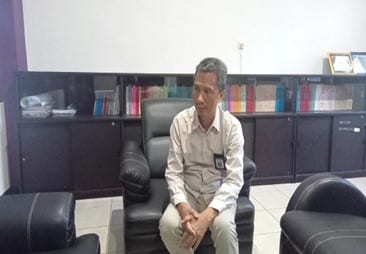Jayapura, Jubi – The Papuan Institute for Human Rights Studies and Advocacy (ELSHAM) in a press release said Papua was like a constant battlefield, plagued by conflict since it became part of Indonesia.
In handling the conflict in Papua, the Indonesian government always deploys excessive military forces. ELSHAM noted that during 2019-2021 there were 46,286 Indonesian Military (TNI) and police personnel sent to assist military operations in Papua.
Since the 1960s, Papua became a Military Operations Area (DOM), and ELSHAM recorded that until 2018, there had been 24 military operations carried out in Papua with various operating codes by the TNI and police.
ELSHAM highlighted President Joko Widodo’s concern about the Ukraine-Russia War, wherein Jokowi said “War is egotistical, ignores humanity , and only craves power”.
“From this statement, it is natural to question Jokowi’s stance on the war that is taking place in Papua? Russia’s treatment of Ukraine in the war is no different from Indonesia’s treatment of its people in Papua,” director of ELSHAM Papua Matheus Adadikam said in a written statement received by Jubi on Thursday, June 23, 2022.
In Chapter 1 Article III of the Geneva Convention
Relative to The Treatment of Prisoners of War of 12 August 1949, in the case of armed conflict not of an international
character, point I states “Persons taking no active part in the hostilities, including
members of armed forces who have laid down their arms and those placed hors de combat by sickness, wounds, detention, or
any other cause, shall in all circumstances be treated humanely, without any adverse distinction founded on race, colour, religion
or faith, sex, birth or wealth, or any other similar criteria”.
“But the reality in Papua, the armed conflict has taken many civilian lives and resulted in a large internally displaced people such as in Nduga, Intan Jaya, Bintang Mountains, Maybrat, Puncak, and Yahukimo,” said Adadikam, adding that war has denied children access to education, and stripped off their right to health and economy.
According to a report by Conflict Armament Research (CAR), Indonesia through its State Intelligence Agency (BIN) purchased around 2,500 mortars from Serbia which were then used in Papua in 2014.
This was a deviation from BIN’s duties and functions. According to Article 29 of State Intelligence Law No. 17/2011, BIN is in charge of: a. conducting assessments and formulation of national policies in the field of intelligence; b. delivering intelligence products as consideration for determining government policies; c. planning and implementing intelligence activities; d. making recommendations relating to foreign persons and/or institutions; and e. providing considerations, suggestions, and recommendations on securing governance.
“According to the law, the State Intelligence Agency has zero authority to buy ammunition or firearms,” Adadikam said.
With the escalated conflict that continues to occur in Papua, the Indonesian government should be open to the realities of civil society life at the grassroots and hear their voice and aspirations.
ELSHAM assessed that up to this point, a very militaristic approach is still being used by the state in responding to problems in Papua. ELSHAM urged the state to prioritize a more humane and dignified approach in order to uphold human rights in Papua, by doing the following:
- The President must immediately stop the use of mortars and war defense equipment which is currently being used in military operations in Papua.
- The government must immediately audit the State Intelligence Agency (BIN) which has allegedly abused its duties and authorities. (*)











